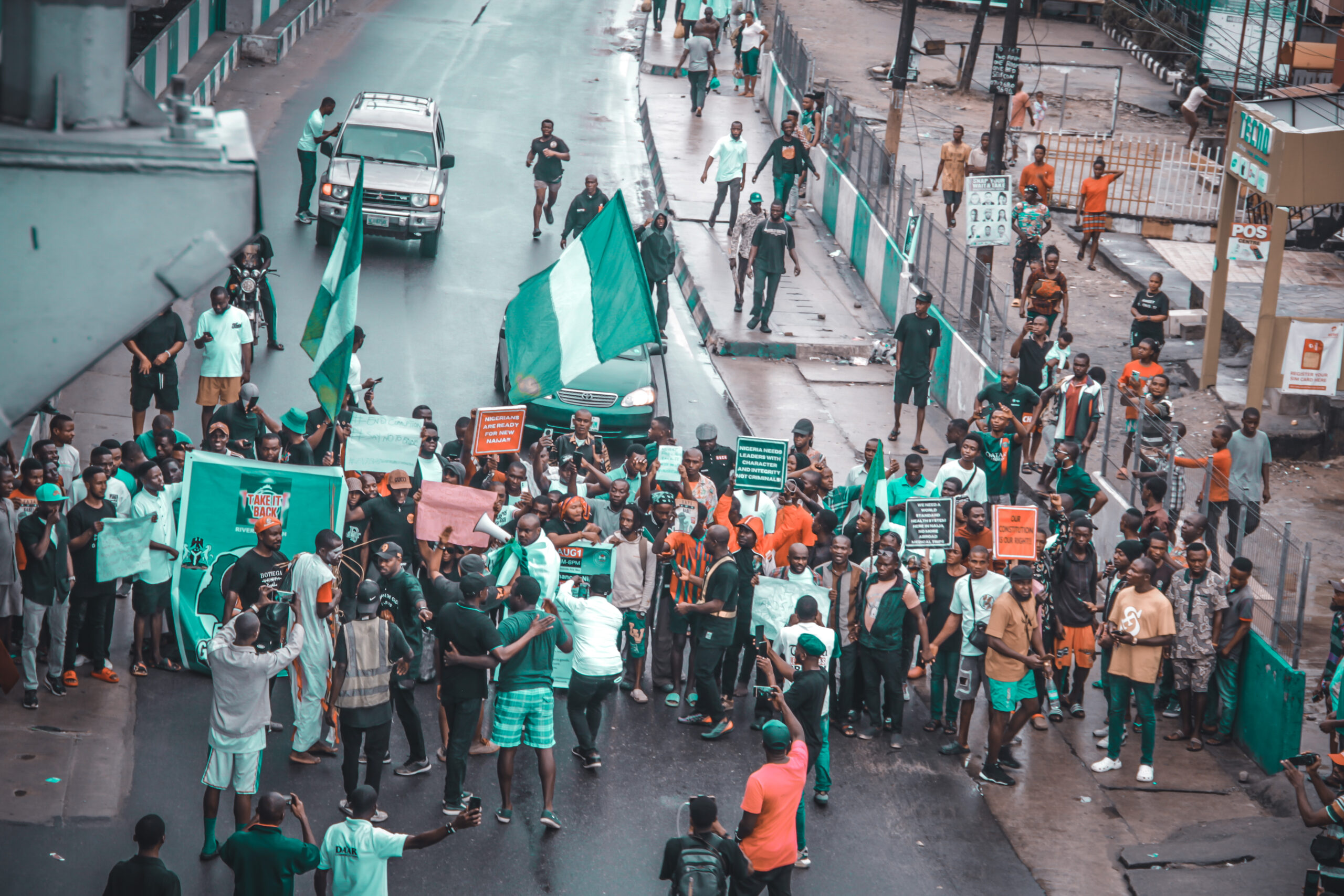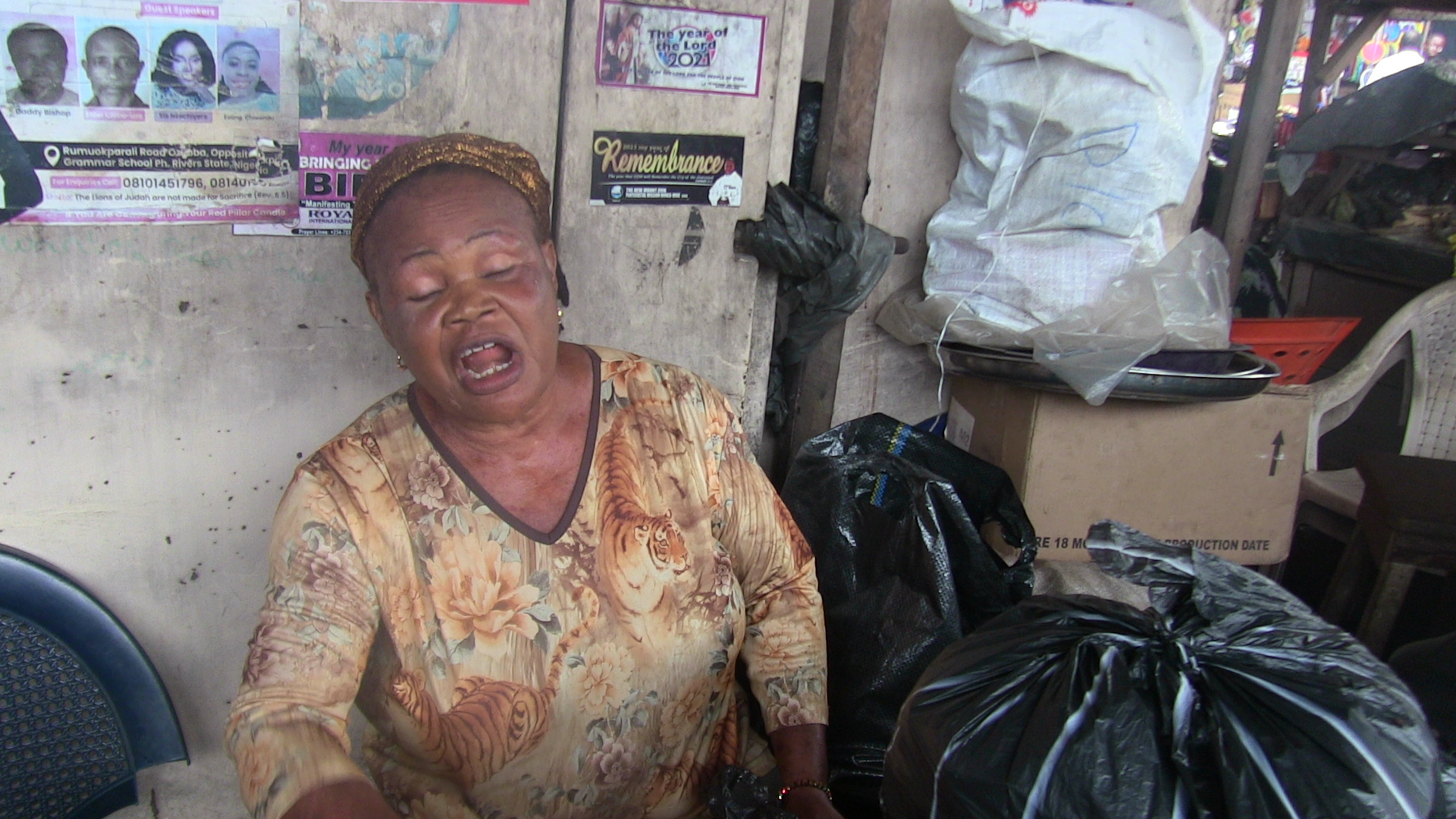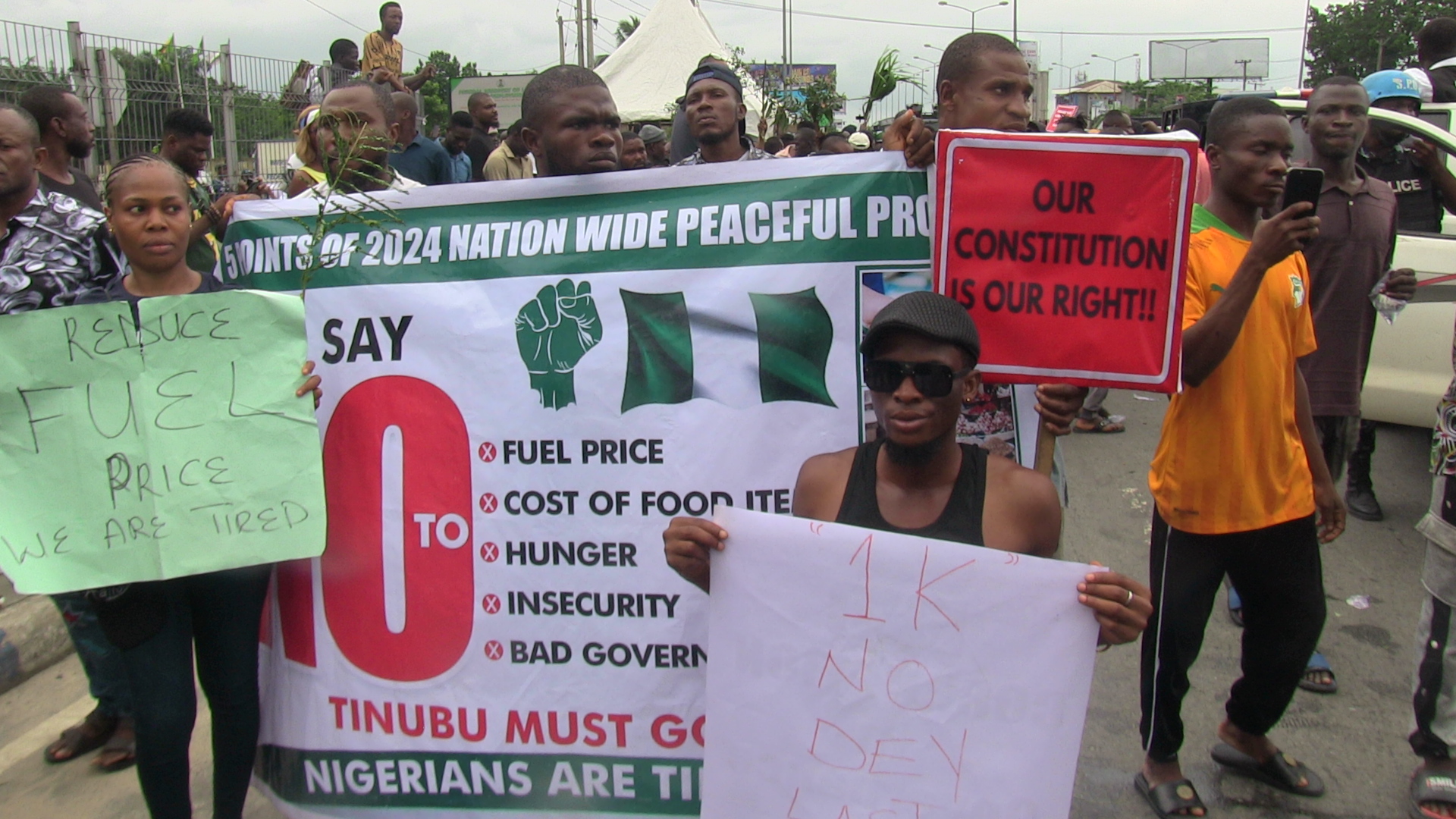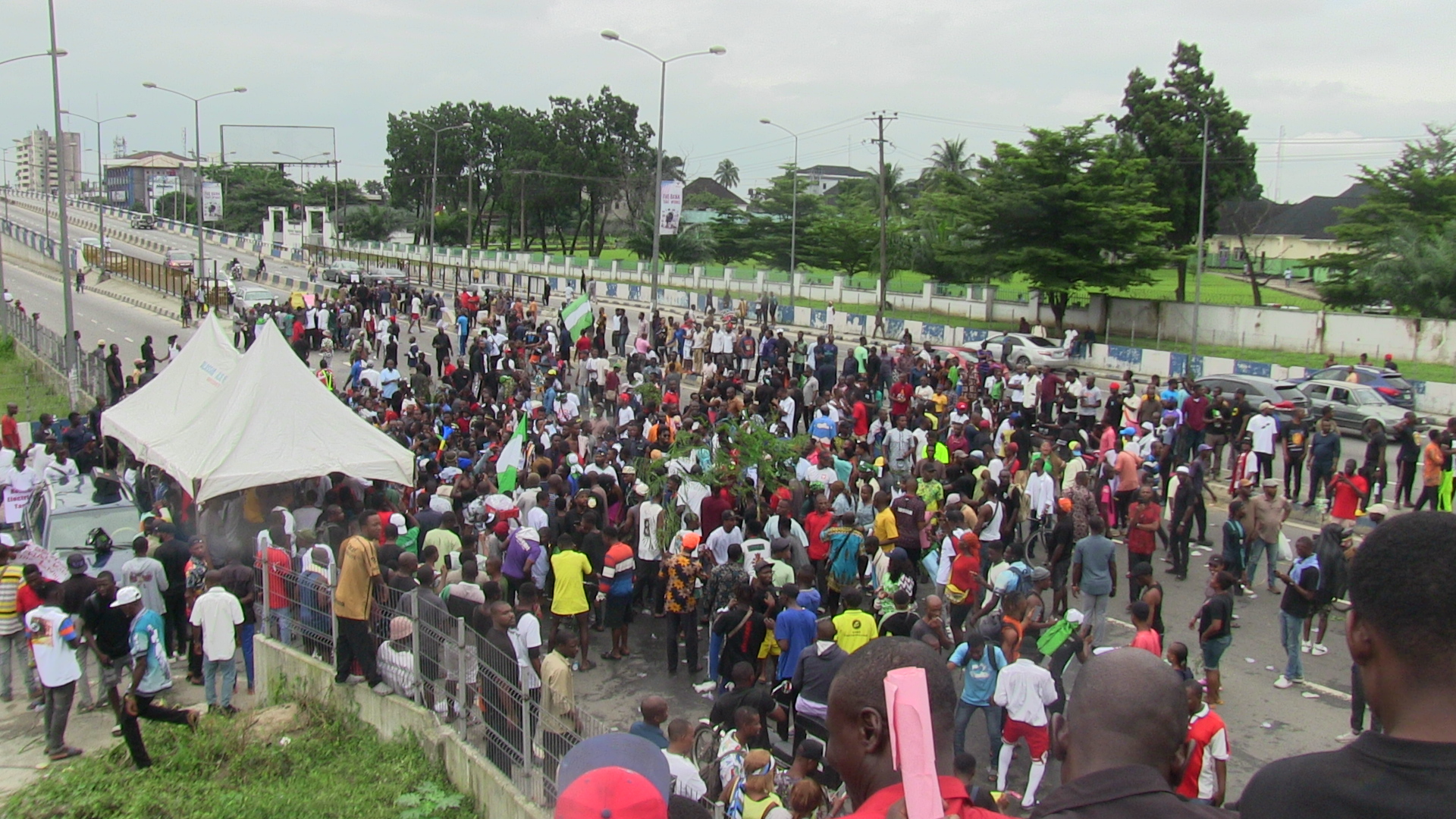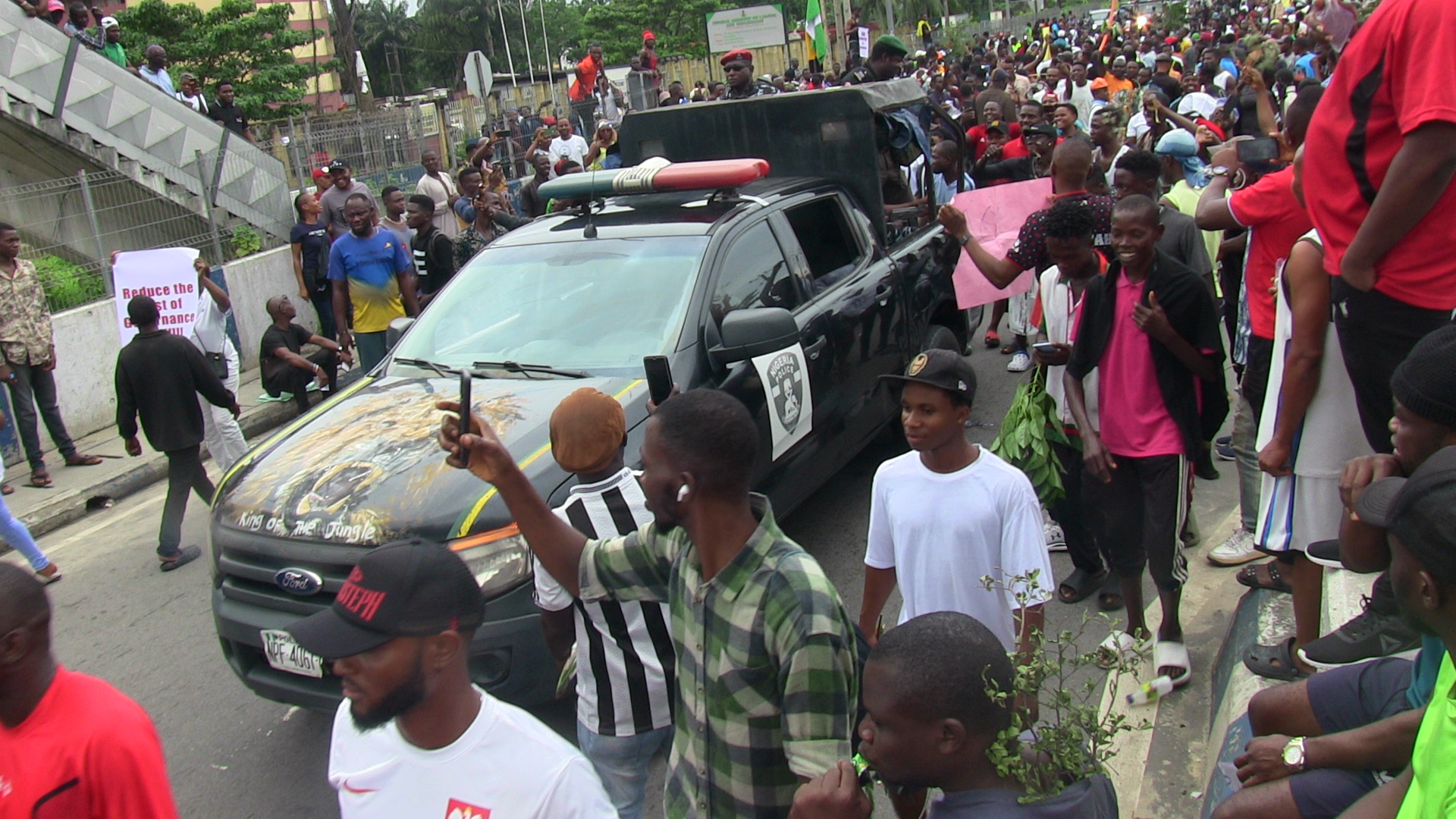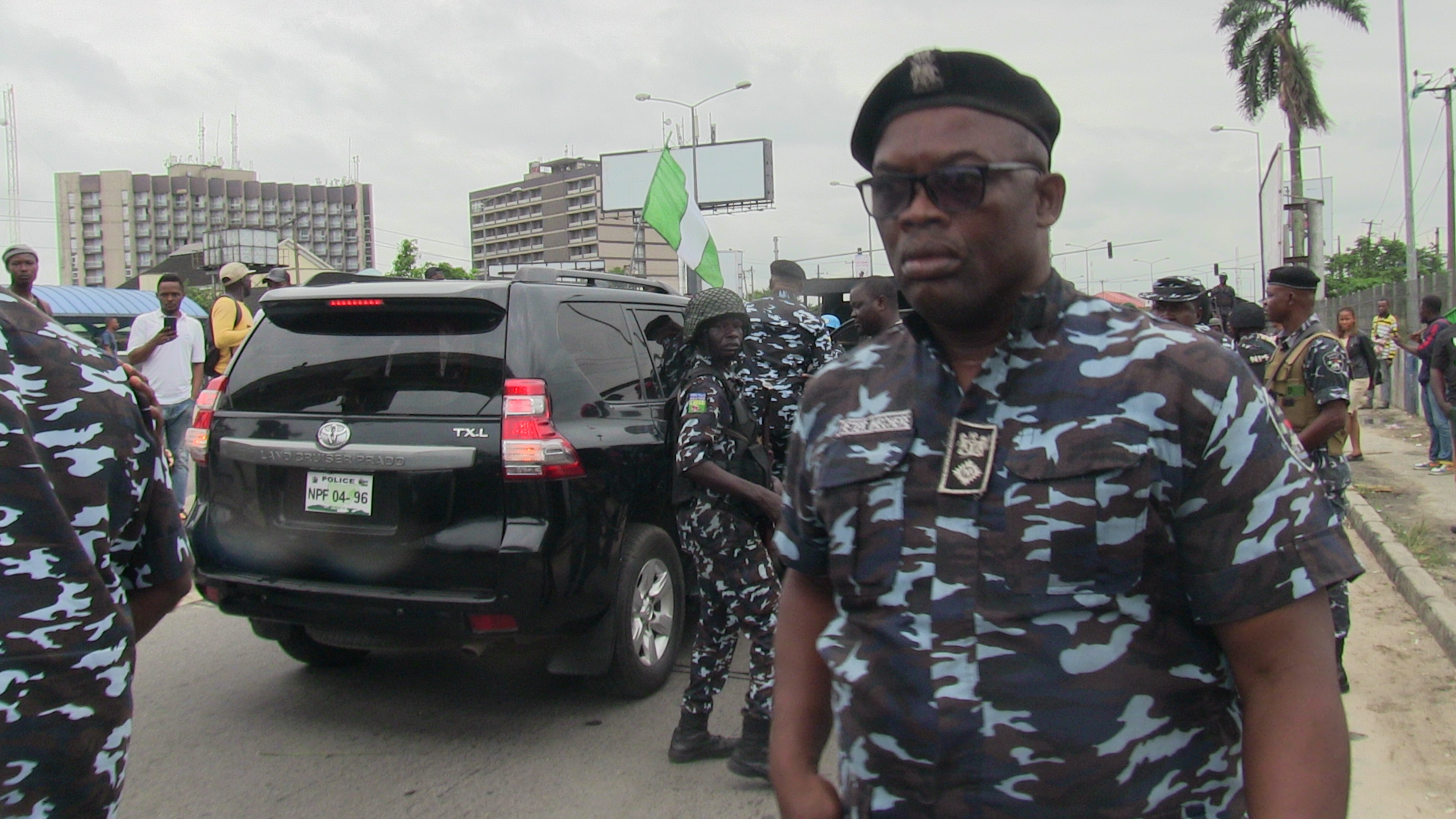Nation-Wide Protest in Nigeria: A Fallout of Bad Governance and High Cost of Living
Introduction
Nigeria’s return to democracy in 1999 was a moment of great hope and anticipation for millions of citizens who believed that democratic governance would bring about good governance, social justice, and economic development. The People’s Democratic Party (PDP), which held power at the national level for 16 years, was expected to deliver on these promises. However, despite being in power for such an extended period, the PDP left behind a legacy of unmet expectations, with little tangible progress in critical areas such as infrastructure, education, and healthcare.
In 2015, the All Progressives Congress (APC) capitalized on the widespread disillusionment with the PDP by promising a new era of transparency, economic revival, and improved living standards under the leadership of then-President Muhammadu Buhari. Unfortunately, these promises have largely gone unfulfilled. Under the APC, most economic indicators have deteriorated further, leading to unprecedented levels of hunger, poverty, unemployment, and insecurity. The cost of living has skyrocketed, leaving many Nigerians struggling to afford even basic necessities. Meanwhile, the political elite continue to live in opulence, their lifestyles starkly contrasting with the hardships faced by the electorate, many of whom now struggle to secure even a single meal each day.
Nigeria, a nation rich in resources, has recently experienced a wave of nation-wide protests beginning on August 1, 2024, spurred by escalating economic hardship and widespread dissatisfaction with governance. The protests, initially scheduled to last for ten days, were fueled by the unprecedented cost-of-living crisis, characterized by surging inflation reaching a 28-year high and economic policies of the current president Ahmed Bola Tinubu that devalued the naira to record lows against the dollar. The dire economic conditions, coupled with frustration over governance failures, sparked a broad-based movement across the country. While these protests started peacefully, they eventually descended into violence, escalated by government-backed efforts to suppress the demonstrations.
Highlight and Highpoints of the Protest
The protests, which were a direct response to the economic challenges faced by Nigerians, highlight several key observations:
- Economic Hardship as a Catalyst:
The root cause of the protests lies in the severe economic difficulties faced by the Nigerian populace. Inflation has eroded the purchasing power of ordinary citizens, making basic necessities unaffordable. The government’s economic policies, particularly the management of the currency, have compounded the crisis, pushing the naira to unprecedented lows against the dollar. Transportation of persons and goods skyrocketed when President Tinubu announced the abolition of subsidy on refined petroleum product in an economy heavily dependent on fossil fuel imported into the country by cronies at the corridors of power while the four government owned refineries has been deliberately made to malfunction and left to rot. The government policy to float the naira in order to bridge the gap between CBN exchange rate with the dollar and the parallel market backfired. In a country with pale productive sector and processed commodities have to be imported from abroad, this policy only further shot up the prices of goods as importers have to spend more naira to get the needed foreign exchange for merchandise. The additional cost on essential goods is the resultant depletion of the meagre income of the citizens who are already groaning under the weight of 34% headline inflation and 40% food inflation. This economic strain has disproportionately affected the poor and middle-class citizens, creating widespread discontent.
- Peaceful Protests Turning Violent:
On the first day of August 2024, youths from all walks of life trouped into the street to express their discontentment over the heightened hardship in Nigeria. Social Action organised press conferences in Port Harcourt and Abuja and collaborated with other civil society organisations to support the process of the peaceful protest which, we believe, is the constitutional right of the citizens (We Declare Total Support and Solidarity with Youth Protesters (mailchi.mp).
Initially, the protests were conducted peacefully, reflecting the citizens’ desire to express their grievances in a lawful manner. Young people from all walks of life organized themselves in groups with their placards with the hashtag #EndBadGovernment and a clear message to the government for better conditions of living. However, the introduction of violence was largely attributed to the actions of anti-protest groups allegedly sponsored by the government and local political figures. These groups were reportedly deployed to disrupt the protests, leading to clashes and chaos. Notably, in Delta State, thugs sponsored by the Warri-West Local Government Chairman attacked protesters organized by the Civil Rights Council (CRC), in full view of police officers who failed to intervene.
- Security Forces and Government Response:
The government’s response to the protests was marked by repression, intimidation by state and non-state agents and personalities. Rather that address the grievances and demands of the protesters, the governance rather engaged in a blamed game with opposition parties and went about cultural profiling and creating hate and division among the citizens. When they realized all their uncivilized machinations did nothing to dissuade the protesters, who matched their words with action by matching massively to the streets on August 1, 2024 across major cities in the country, security forces were deployed to suppress the demonstrators. Reports from various states, particularly in the northern region, indicate that security forces fired on peaceful protesters, leading to casualties. In Delta State, CRC members on a peaceful protest were molested and assaulted by sponsored hoodlums who confiscated their phones and other recording devices and even inflicted bodily hard to some of the members. All these happened in the full glare of the police who stood there and watched. Instead of arresting the hoodlums, the police command in Delta state took side with these anti-progressive elements and arrested the and detained the leader of Warri (2) CRC unit Mr. Ojumade Tosan and seized both protest materials and personal effects with him. The case was similar in Lagos and Port Harcourt where peaceful protests were truncated by hired thugs who beat up journalist, vandalized their vans and confiscated phones of protesters including notable musicians who wengt to the protest ground to chant solidarity songs.
The President’s call for an end to the protests did little to quell the unrest, as citizens remained undeterred, driven by their frustrations. The complicity of security forces, who stood by as thugs attacked protesters and journalists, suggests a deliberate strategy to intimidate and silence dissent. It’s a shame that the police would arrest peaceful protesters but turn the other way when hired thugs assault and molest innocent citizens
Recommendations
To address the underlying causes of the protests and prevent future unrest, the following recommendations are proposed:
- Economic Reforms:
The government must prioritize economic reforms aimed at stabilizing the currency and controlling inflation. This includes adopting policies that promote economic growth, reduce dependency on imports, and strengthen the naira. Additionally, social safety nets should be expanded to protect vulnerable populations from the impact of economic shocks. The government must adopt a deliberate and strategic approach to revitalizing the productive sector, aiming to achieve self-sufficiency in food and essential commodities while positioning the economy to capitalize on export opportunities. Such a strategy will not only boost foreign exchange earnings but also fortify the naira’s value against other currencies. The federal government must be intentional about revitalizing the nation’s four refineries to full operation, enabling the comprehensive refining of crude oil into its various components.
Industries and SMEs are increasingly reliant on privately generated power due to the state’s failure to ensure adequate electricity supply through the national grid. This persistent shortfall has left businesses and households struggling to meet their energy needs. The nation will continue to suffer economically as long as it remains dependent on imported petroleum products to satisfy domestic demand. With the naira’s value steadily declining against major currencies, the cost of fuel will inevitably rise, placing it further out of reach for ordinary citizens and worsening the challenges of daily life. It is imperative to focus on supporting other privately owned refineries to enhance local production. This can be achieved through the implementation of policies that promote local content and align with the current economic realities.
- Accountability for Violence:
There must be a thorough investigation into the violence that occurred during the protests, particularly the role of government officials and security forces. Both state and non-state actors who issued direct and subtle threats to the protesters and creating a tense and precarious atmosphere prevalent for violent clashes must be called to question. Security personnel who aided the violence or failed to protect citizens should face disciplinary action, and the rights of protesters must be upheld in accordance with the 1999 Constitution.
- Dialogue and Engagement:
The government should engage with civil society groups, labor unions, and community leaders to address the grievances that led to the protests. Open dialogue and meaningful engagement can help build trust between the government and the populace, reducing the likelihood of future unrest.
- Tackle Corruption and reduce Cost of Governance
The government must urgently address the excessive cost of governance and eradicate corruption to enhance service delivery and promote sustainable development. By streamlining public expenditure and eliminating wasteful practices, the government can redirect resources to critical sectors such as healthcare, education, and infrastructure, ensuring that citizens receive the quality services they deserve. Furthermore, rooting out corruption will restore public trust, create a more transparent and accountable governance structure, and attract investment, all of which are essential for fostering economic growth and improving the overall well-being of the nation.
- Strengthening Democratic Institutions:
To restore faith in governance, there is a need to strengthen democratic institutions, ensuring they are independent and capable of holding public officials accountable. This includes reforming the police force to ensure it operates impartially and protects citizens’ rights, as well as enhancing the judiciary’s role in upholding the rule of law.
Summary/Conclusion
The nation-wide protests in Nigeria, ignited by economic hardship and perceived governance failures, underscore the critical need for comprehensive reforms. The peaceful nature of the initial demonstrations reflects a populace committed to lawful expression of grievances, but the subsequent descent into violence, facilitated by government-backed thugs and complicit security forces, highlights deep-seated issues within Nigeria’s political and economic systems. While we unequivocally denounce the violence that ensued in certain states, leading to tragic loss of life and significant property damage, it is evident that the escalation could have been prevented had the government heeded the initial warnings of the protest. A proactive approach, centered on preemptive measures, would have mitigated potential conflicts. Rather than resorting to threats, fostering political and regional divisions, or engaging in ethnic profiling, the government should have prioritized establishing open lines of communication with the protest leaders to address the critical issues they raised.
To move forward, the government must address the economic challenges facing the country, ensure accountability for violence, and engage in genuine dialogue with the citizenry. By doing so, Nigeria can begin to rebuild trust between the government and its people, laying the foundation for a more stable and prosperous future.

